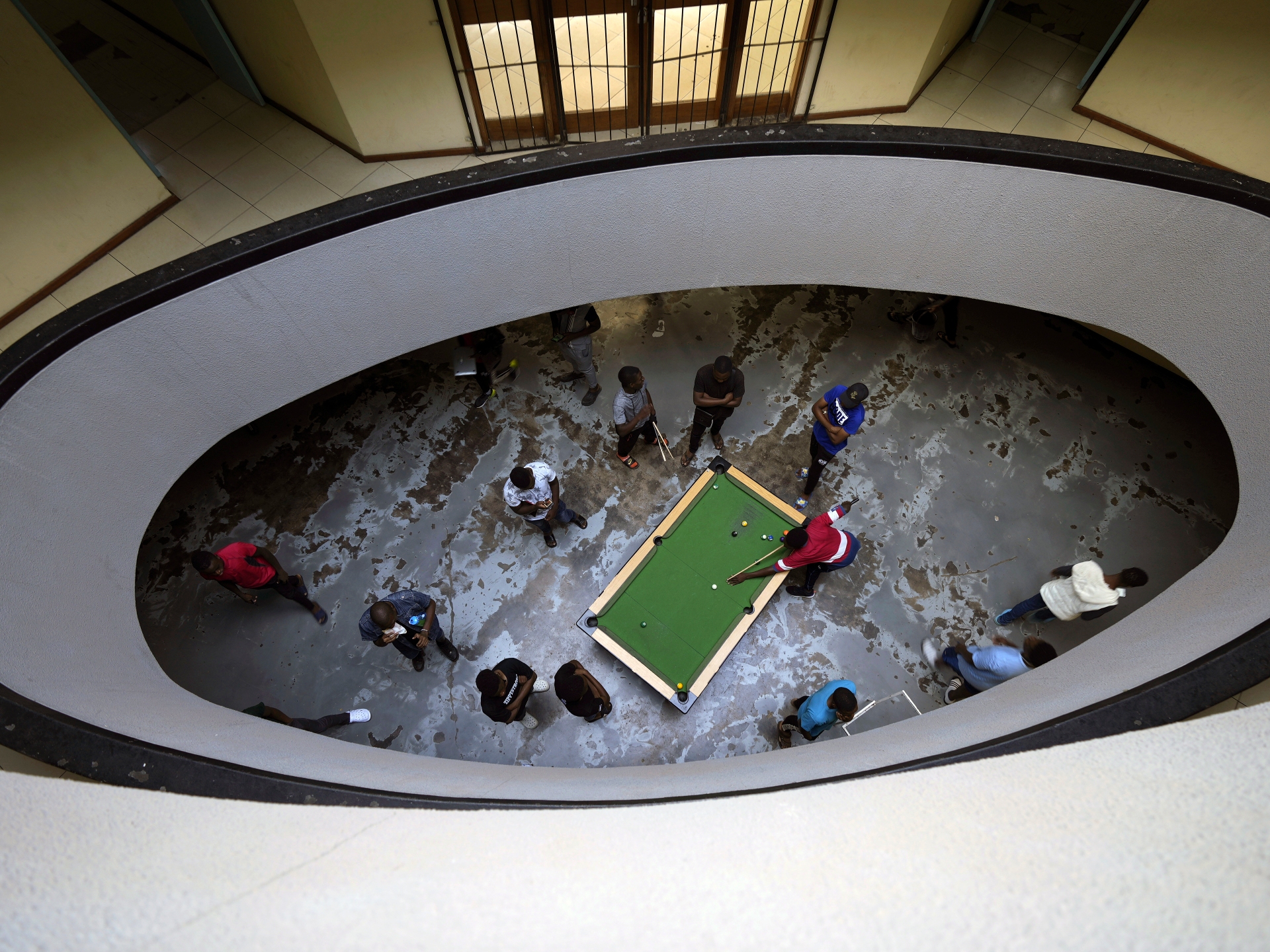Highlights of the World Cup and other sports events are on widescreen televisions in Ruwa on the outskirts of Zimbabwe’s capital, Harare. But all eyes are on the pool table … and the money.
Among them is 18-year-old Levite Chisakarire.
“I have to take the cash home … there is big money today,” he said, holding a pool stick and awaiting his next opponent.
At stake is the first prize of $150, a princely sum in a country where the majority earn slightly over $100 a month, according to official government figures, and about half of the 15 million population live in extreme poverty, according to the World Food Program.
“It can go a long way to pay the bills,” said the boyish Chisakarire, the youngest player vying for the day’s prize.
Previously a minority sport played in Zimbabwe’s wealthier neighbourhoods, pool has increased in popularity over the years, first as a pastime and now as a survival mode for many in a country where full-time jobs are very hard to come by.
Unable to further his education after finishing high school with low grades in 2019, Chisakarire struggled to find a job in Zimbabwe’s stressed industries. The outbreak of COVID-19 meant his father, a truck driver, lost regular work. So Chisakarire began hanging around an illegal tavern where patrons dodged or bribed police to overlook pandemic restrictions so they could drink beer and play pool.
His hobby became a skill and he showed a talent for shooting round balls into the pockets. Soon it helped solve his financial problems as he began betting on his games and winning. These days he earns about $300 on a good month by playing pool, he says.
He is not the only one. The majority of Zimbabweans earn a living from informal activities, which include selling tomatoes at roadside stands and also by playing pool, according to an October labour survey by the country’s statistics agency. About half of young people aged between 15 and 34 are unemployed and not engaged in education or training.
In Harare alone, the number of professional players has quadrupled to about 800 in the past five years, according to Keith Goto, the spokesman of the Harare Professional Pool Association.
Makeshift pool arcades flourish in bars, verandas in front of shops, and just about any open space. Some enterprising residents have pool tables at their homes where they charge people 50 cents to play and place bets in violation of city laws that require such enterprises to be properly licensed. The tables are often worn and wobbly, but people do not seem to care.
Authorities sometimes carry out so-called clean-up operations to confiscate pool tables scattered all over. Often enforcers of city by-laws are simply paid off with as little as a $2 bribe to look the other way. Most punters in low-income townships place dollar bets on games in which they can win $3 or $4.
